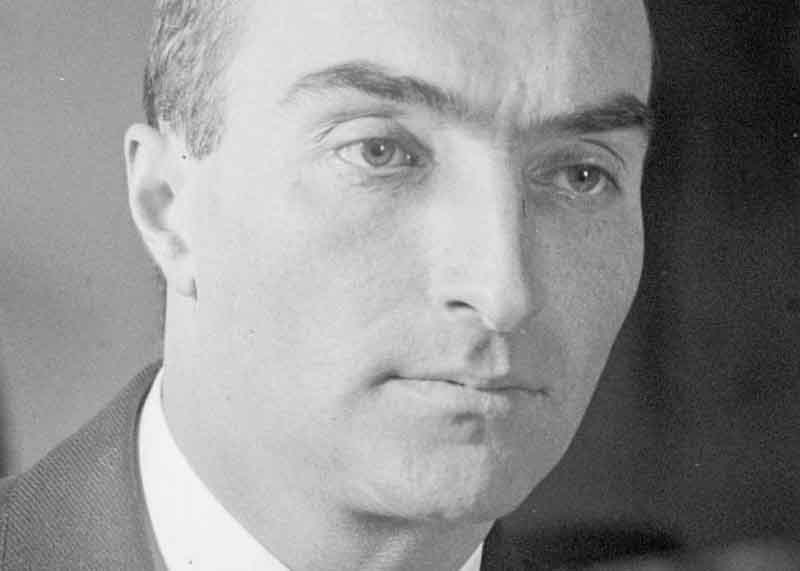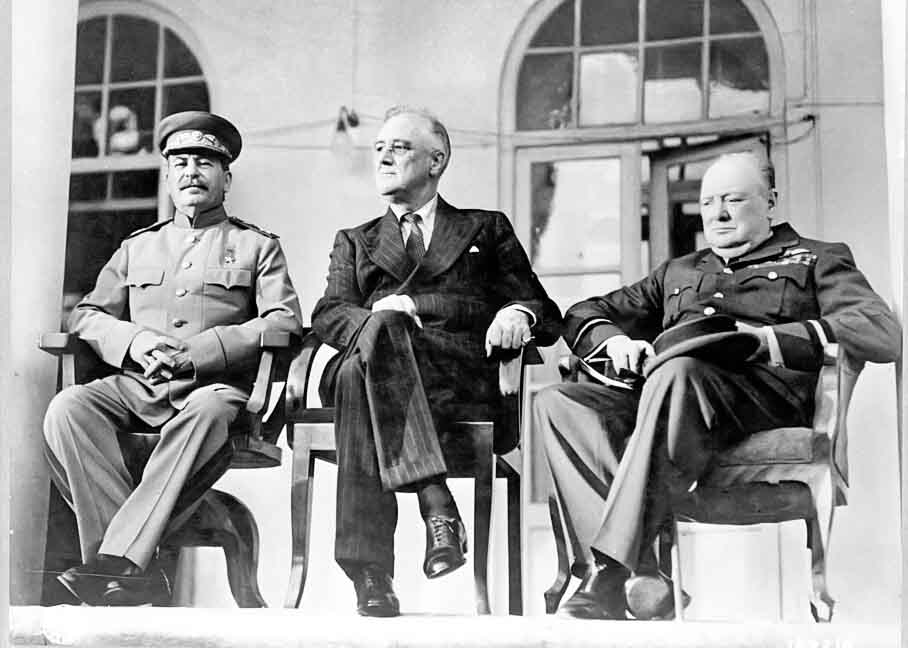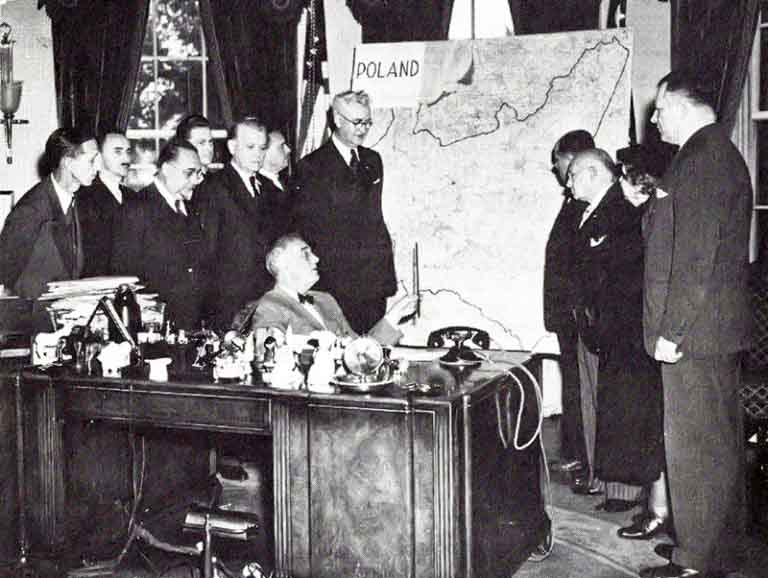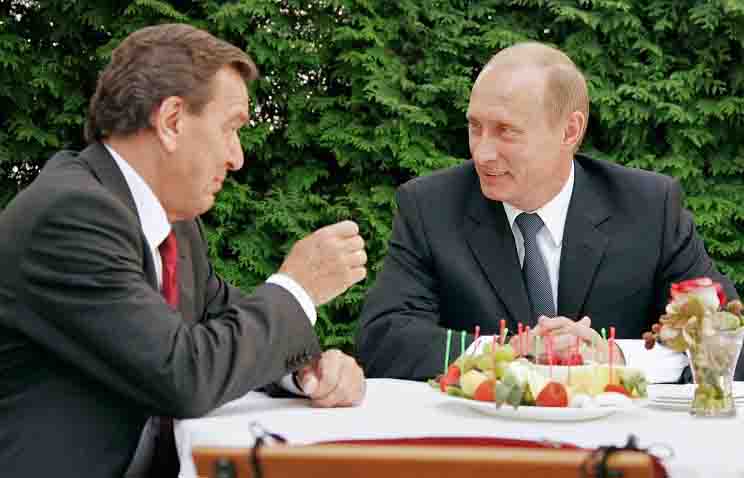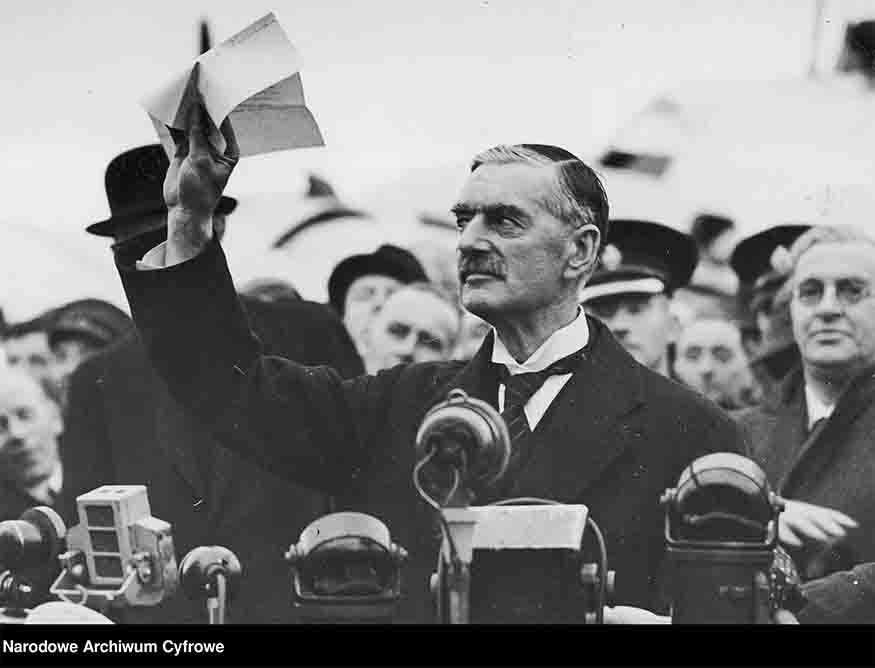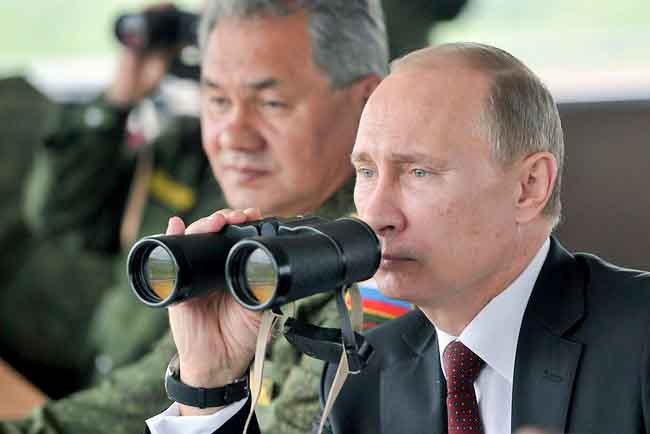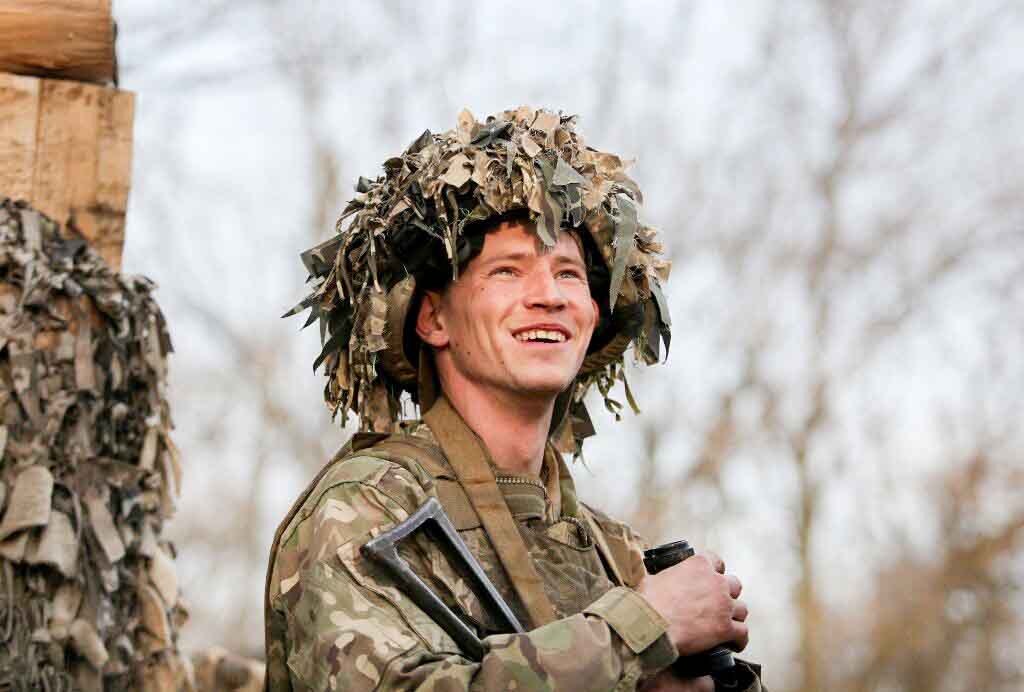On November 28 – December 1, 1943 in Tehran a meeting of the leaders of the anti-Nazi coalition (the so-called Big Three): US President Franklin Delano Roosevelt, British Prime Minister Winston Churchill and Soviet leader Joseph Stalin, was held. Key decisions were made there to end World War II, and Central and Eastern Europe was sold there for a promise to support America in the war with Japan.
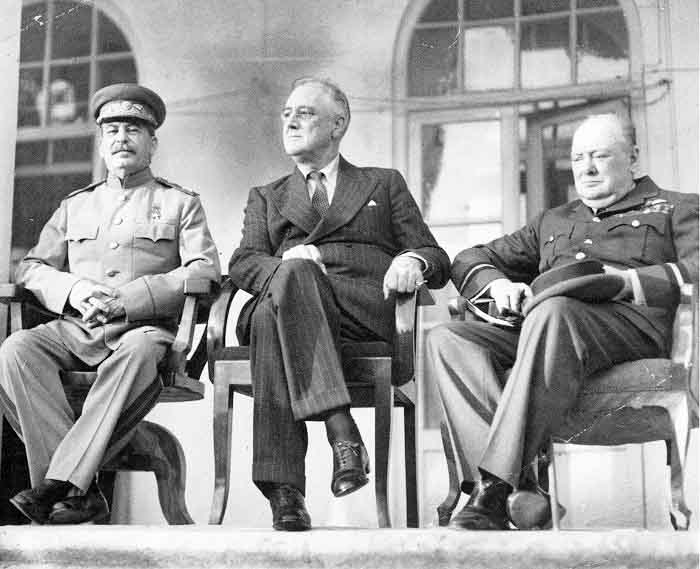
The "Big Three": From left to right: Joseph Stalin, Franklin D. Roosevelt, and Winston Churchill on the portico of the Russian Embassy during the Tehran Conference to discuss the European Theatre in 1943. Churchill is shown in the uniform of a Royal Air Force air commodore (Source: Wikipedia)
Even in 1941, Stalin was — after all — Hitler's ally. It is thanks to the effectively conducted politics and the influence of the Soviet intelligence that communist Russia became an influential power deciding the fate of the world of the 20th century, and its diplomacy was able to effectively become the dominant force, dictating the new order to the world.
Stalin realized that the creation of a second front by the Allies was impossible in 1943, but demanded from the Allies a political price which they chose to pay. That price was Central and Eastern Europe. Around Roosevelt and Churchill, there were Soviet spies who directly influenced the politics of Western leaders. Hasn't history come full circle and doesn't it repeat itself again?
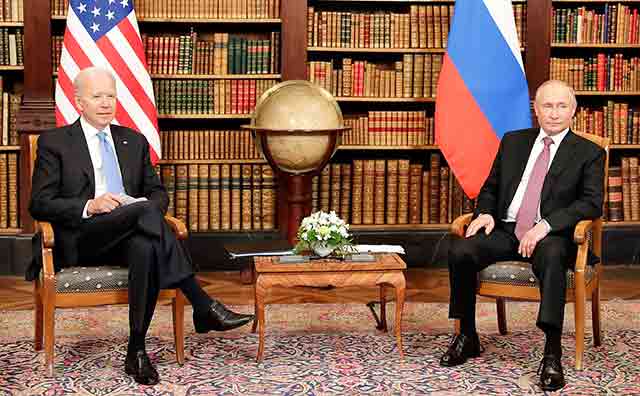
Joe Biden and Vladimir Putin in Geneva, 16 June 2021 (Source: Wikipedia)
After two Biden-Putin meetings, Russia revealed its cards and demanded a new division of the world from NATO and the United States. On the website of the Ministry of Foreign Affairs of Russia, you can read two documents that clearly state that none of the countries that emerged after the collapse of the Soviet Union can be admitted to NATO.
The second condition of this peculiar ultimatum is that NATO must withdraw its forces from Central and Eastern Europe. It will not be possible to conduct any military exercises in these areas, nor to install any modern military infrastructure.
This cynical proposal is addressed not to the European Union or its constituent states, but directly to the United States, and its price — implicitly — is Russia's non-involvement on the side of China for surrendering Central and Eastern European states to Russia's influence.
I would like to remind you that on July 4, 1943, General Sikorski, the leader of the Polish state, died in unexplained circumstances, which made it easier for the Allies to make subsequent decisions about Poland. In the United States and in Great Britain, the Polish press was subject to Allied censorship. The news of the Tehran settlement was not released so that President Roosevelt could win the election. He cynically deceived the leaders of the Polish American Congress. Polish diplomacy did not work, and the pro-Soviet propaganda successfully blocked any promotion of the Polish raison d'état.
How will it be today? Will the countries of Central and Eastern Europe make a joint effort to defend their sovereignty? Will the American Polonia, after it was broken up by communist agents and taken over by Western agencies, be able to mobilize itself, as in 1944, to defend the Polish nation? Can we learn and draw conclusions from history, or will we just let the Russian and Western agents' game play out again and sacrifice the nations of Central and Eastern Europe for the sake of international peace?
Let's stop divisions and labeling each other better or worse patriots. Now, in the face of another threat, we need unity. Polish sovereignty is under threat again. Regards from Milwaukee.





